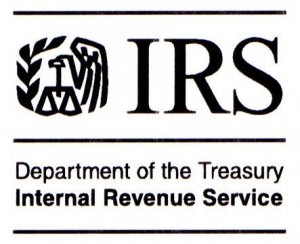IRS Audit
IRS Tax Return
Audits
The Internal Revenue Service or IRS is a bureau of the United States federal government’s Department of the Treasury and is under the direction of the Commissioner of Internal Revenue. It is a federal tax collecting agency and the foremost enforcer of the Internal Revenue Code.
To make sure that all federal income tax reported is correct, the IRS conducts an audit or a review of all financial information of an individual taxpayer’s or organization’s account conforming with the tax laws. The IRS audit randomly selects subjects to be audited through computer screenings that is sometimes based on a statistical formula or through filed documents not matching the taxpayer’s records or accounts that involve certain issues regarding transactions.
After the selection process, the IRS sends the taxpayer a notification through mail or telephone call to conduct the audit. Due to disclosure requirements, the IRS doesn’t use e-mail notifications to schedule an audit to avoid any problems with receipt of mail. When the IRS was able to contact through telephone, a letter will be send to confirm the audit with its corresponding schedule.
Taxpayers should be ready with several documents prior to the audit. A letter will be sent with a list of documentations needed. These documentations are primarily the copies of the records issued every time a taxpayer files for his or her federal income tax. They should be kept for three years from the date once the tax return was filed. As the law suggests, these records are needed to prepare for the next filing of the federal tax as well. Only hard copies are accepted by the IRS since these records will be used by an auditor to check with their findings.
In the event that the documents are not ready, the taxpayer can contact the IRS auditor on the number provided in the notification letter and discuss the problem involving the documents. Rather than postponing the initial appointment, there are times when the audit will be performed on schedule using the available information or supporting documents. The other documents can be used as the audit goes along. It is better to begin the audit right away so it will end quickly.
Each IRS audit is different from another. The length depends on what kind of audit it will be and the intricacy of the items to be examined. The length will also depend on the availability of the requested information and documents that will enable the auditor to reach a concise finding in a shorter period of time. Longer IRS audits are attributed to difficulty in setting out meetings with the parties involved as well as the probably disputes regarding the findings after the review.
According the Publication 1, taxpayers under audit should know their rights. They should expect a courteous and professional treatment from the assigned IRS employee. They have the right to know why the IRS is doing the audit and why the need for the different information or documentation for the said audit. They have the right to ask what the information will be used for and to have complete privacy and confidentiality regarding all matters concerning their federal tax. They have the right to represent themselves or have an authorized representation during the audit. They also have the right to disagree with the findings and file for an appeal with the IRS or the judicial court.
Audit findings can be concluded in three ways. After examining all the information that was requested, if there are no discrepancies, the IRS employee can rule out a “no change” finding. If the taxpayer understands the changes that must be mete out, then he or she agrees with the findings and would have to sign the examination report. Payment options will be offered if there is money owed. The collecting process will be explained in detail by the IRS employee to avoid any possible problems from occurring moving forward. If the taxpayer understands the proposed changes but doesn’t agree with it, then the conclusion can be termed as “disagreed”. If this is the case, the taxpayer can request for a conference with the manager to discuss the issue/s regarding federal tax matters and conduct a further tax review. Appeals can be filed within the IRS or the courts.
All cases may be reviewed by the auditor’s manager upon request by the taxpayer to ensure that findings are correct. If there are errors in the computation or the findings, the IRS auditor will contact the taxpayer regarding the proposed correction and the effect of this on the amount due. Everything, from examination of returns, claims, refunds and appeal rights are discussed in Publication 556.
To learn more about federal tax Click Here





